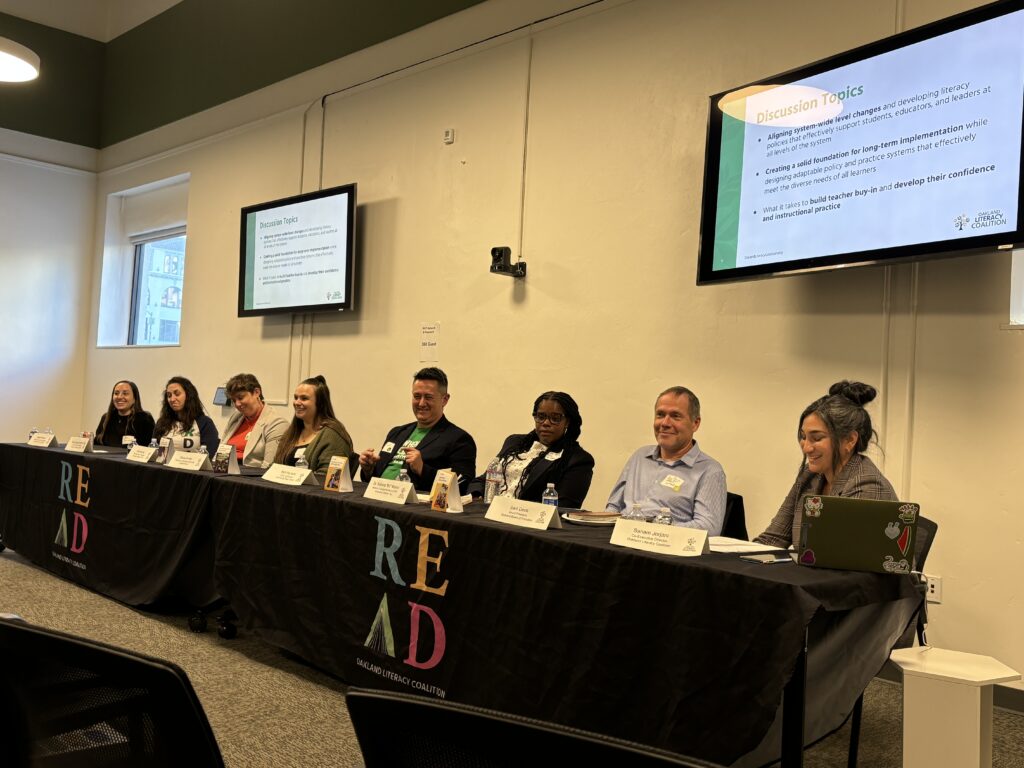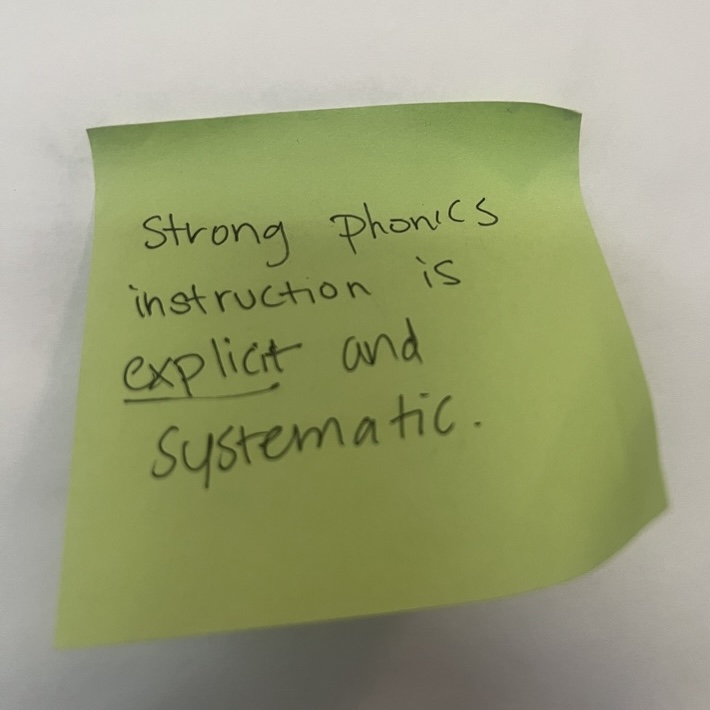Blog
Seeing Literacy Progress Firsthand: Legislators Experience Evidence-Based Instruction in Oakland Schools
Share

Skilled reading doesn’t develop naturally; it requires intentional, research-based instruction. Across the country, including Oakland, districts and states are making bold shifts in both curriculum and teaching methods, grounded in the science of reading research. Now, three years into implementing evidence-based literacy practices, we’re seeing promising results, with steady gains reflected in OUSD schools’ and Lighthouse Charter Public Schools’ student growth data. These early indicators underscore the impact of strategic, evidence-aligned instruction on student reading progress.
On Oct. 29, local and state policymakers joined the Oakland Literacy Coalition, FULCRUM, and the California Early Literacy Coalition for school literacy learning walks in Oakland, followed by a panel discussion. The goal was to provide firsthand insight into how Oakland schools are implementing evidence-based literacy practices and the impact on student learning.

THANK YOU to the seven panelists who joined us for this lively discussion: Sam Davis, OUSD Board Member, Bri Moore, OUSD Network 2 Superintendent, Shaina Hurley, LCPS Principal, Amie Akuma, KDA Principal, Rich Harrison, LCPS CEO, Sarah Fremder, LCPS Reading Interventionist, and Tania Martinez, KDA Literacy Coach
The panel discussion and visits to Korematsu Discovery Academy and Lighthouse Community Charter School highlighted several important lessons:
1. Effective Literacy Implementation Requires Skilled Leadership
- Principals play a crucial role in strategically planning schedules, progress monitoring, and providing ongoing coaching support for teachers.
- Before setting non-negotiable literacy expectations, district and school leaders must first deeply understand the research-based practices themselves.
2. A Systemic Approach Benefits All Learners
- Schools are successfully supporting multilingual learners and students with IEPs by building a strong foundation in foundational skills and providing targeted, data-driven interventions.
- Consistent progress monitoring allows for flexible student grouping and responding to diverse learning needs.
3. Teacher Capacity-Building is Key
- Dedicated professional development, coaching, and collaborative planning time are essential to help teachers confidently implement evidence-based literacy instruction.
- Literacy coaches play an important role in strengthening Tier 1 instruction to reduce the need for intensive interventions.
The classroom observations and panel discussion underscored that transforming literacy outcomes requires aligning systemic changes at all levels – from district leadership to school implementation to the classroom. Policymakers left with a deeper understanding of the complexities and critical success factors in bringing the science of reading to life for students.


From a district perspective, Network 2 Superintendent Dr. Sabrina “Bri” Moore shared the value of leaders who are learners.
“Before I took this job, principals were just saying ‘this is the expectation, because the district told us, without fully learning,’ she said. “So we took a step back. Everybody needs to learn it. Every principal needs to learn. Every coach needs to learn it. And then there’s a system-wide coherent expectation; it’s a non-negotiable.”
Oakland Board of Education President Sam Davis shared his appreciation for joining the learning walk and debrief:
“What I saw belied the stereotype that this is a ‘back to basics’ drill-and-kill approach. Students were experiencing the joy of learning to read, whether it was TK students fascinated with their teacher’s phonemic awareness games, 2nd graders writing about their dreams, or 5th graders summarizing a story in chronological order. The TK teacher created a safe space for students to make mistakes and celebrate correct answers, helping each other to learn.” Davis thanked Assemblymember Al Muratsuchi, chair of the state Assembly Education Committee, for coming to Oakland to join the classroom visits. “I hope the Assembly will choose a carrot (not a stick) approach to incentivizing the use of evidence-based practices in early literacy instruction,” he said.
The Oakland Literacy Coalition will be hosting additional school site visits in the spring of 2025 to continue informing policy and practice. We welcome the opportunity to partner with state and local leaders to ensure all students receive the high-quality, evidence-based literacy instruction they deserve.
For a closer look at what we saw during the walk throughs at KDA and Lighthouse, read the recap here:
Joy and Rigor in East Oakland Classrooms



